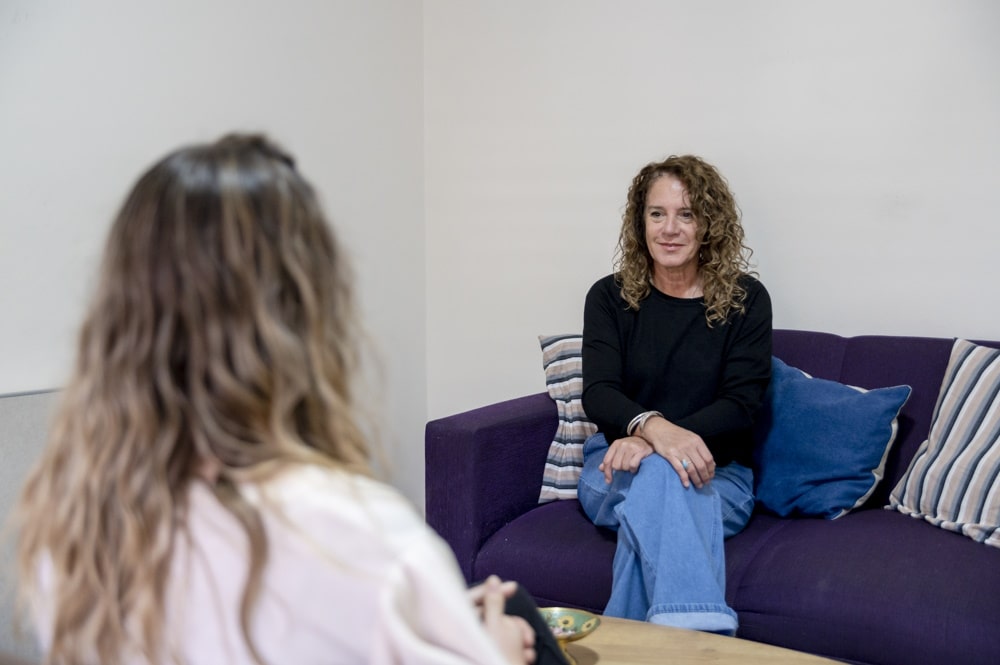Summer is over, the clocks have gone back, and the trees have begun to lose their leaves. You can feel the temperature drop, and the nights seem longer than the day.
Winter, a season often associated with joy and festivities, can be a challenging time for some. While many eagerly anticipate the festive season, others may experience a dip in their mood, leading to feelings of sadness, lethargy, and isolation. This seasonal mood disorder, known as seasonal affective disorder (SAD), can significantly impact a person’s well-being.
If you find your mood changing with a change in season, it’s time to look for a therapeutic intervention.
I’m Mark Greenaway-Robbins, a registered counsellor and psychotherapist offering personalised seasonal affective depression treatment for those who struggle to take part in the joys of the season. During our sessions, I will identify the causes of your seasonal mental health issues and how best to address them.
Let’s explore therapy as an effective seasonal affective depression treatment.
What is SAD?
Seasonal affective disorder (SAD) is a type of depression that is usually experienced with a change in weather. It generally manifests from the end of autumn and can extend throughout winter. As the weather changes and the days become shorter, you may often experience sluggishness and mood changes. SAD is also commonly known as the winter blues.
The NHS estimates that 2 million people in the UK are affected by SAD annually. While the exact cause of SAD is unknown, it’s assumed that reduced exposure to sunlight can be one of the primary seasonal affective disorder reasons.
While SAD is more common in the winter, 1 in 15 people experience seasonal depression during September and April in the UK, suggesting it also impacts some during the warmer months.
Symptoms and Effects of SAD
Before delving into types of seasonal affective depression treatment, let’s understand how to self-diagnose your depression. Here are some common symptoms of SAD:
- Continuous low mood
- Isolation or staying away from social gatherings
- Noticing emotions such as guilt, hopelessness and worthlessness
- Low sex drive
- Binge-eating, craving sugar or loss of appetite
- Crying
- Lack of concentration and irritability
- Low energy
- Change in sleep patterns
People who experience SAD often crave foods rich in carbohydrates and sugar, leading to weight gain, which can lead to more sluggishness and depressive thoughts. They are also more likely to be irritable and may avoid joining in on the festivities of the winter holiday season. When people in relationships suffer with SAD, it can manifest in a low libido and low mood, which can further impact mental health.
Although the exact reasons for SAD are still unknown, some of the common causes of different types of seasonal depression are thought to be:
- Change in biological clock due to less exposure to sunlight during the winter months. Our body’s internal clock regulates our mood, sleep patterns and hormonal balance. A disruption in either can lead to seasonal mental health issues.
- Lack of exposure to sunlight can impact the production of melatonin and serotonin in our bodies. Low levels of both of these hormones can lead to fatigue, unhappiness and insomnia.
- The long nights and being cooped up indoors due to bad weather can lead to negative thoughts, and this can exacerbate SAD symptoms.
How Therapy Helps With Seasonal Affective Depression Treatment
People who are suffering from any type of psychological issue are more prone to experiencing seasonal mental health issues. For any mental health disorder, a visit to your GP, alongside talk therapy or counselling is a great step to take.
If you’re looking for a more holistic treatment for SAD, speaking to a professional therapist can help.
Talking Therapy
Talking therapy or counselling can go a long way in alleviating the symptoms of SAD. If you’re looking for seasonal affective depression treatment, then signing up for regular counselling sessions can be helpful.
You can discuss your worries, stress, fears and triggers behind SAD in a non-judgemental setting. The therapist can help you better process and acknowledge your feelings and empower you to take positive steps towards leading a more wholesome life.
Cognitive Behavioural Therapy (CBT)
If you are looking for seasonal affective disorder holistic treatment, then CBT may be something to consider. A therapist can provide different tools and techniques to help overcome negative emotions and embrace a more positive coping mechanism. It will help change how you think about the weather and will give you a more practical approach to dealing with your thoughts and feelings.
Alternative Treatment Options
Medications like antidepressants are another port of call for SAD treatment. These medications should only be taken under expert guidance, and can often have side effects, so talking with a doctor is crucial if you are considering looking into this option.
You may also want to try to spend more time outdoors and indulge in more physical activities, such as going for a walk, hike or simply attending a picnic or an outdoor lunch.
Light therapy is another treatment suggested for those who suffer from SAD, under the guidance of a GP or a mental health professional. In light therapy, the patient is exposed to an artificial light source for 30 minutes while they sit in a box or chamber-like space. However, common side effects of light therapy can include blurred vision, headache and agitation.
As with any mental health issue, talking therapy is highly effective, offering a more long-term solution and coping mechanisms for a more fulfilling life.
Tackle SAD Symptoms and Work With Mark Greenaway-Robbins
Do you find yourself distancing yourself from friends and family during the autumn and winter? Do you find it difficult to explain to others why you don’t like the festive season? If yes, I am here to help you. Consider me as a non-judgmental presence who will offer you a safe space to discuss your emotions and find solutions that suit you.
My seasonal affective depression treatment includes tailored talk therapy that can be in-person, online or during a walk.
Fill out a form, call, text, or email me, and let’s have a conversation. Together, we can discuss how to beat the winter blues.



